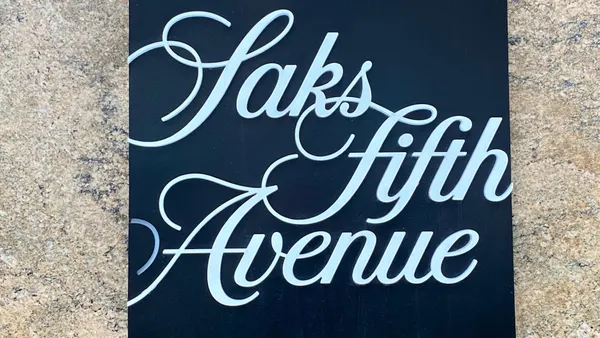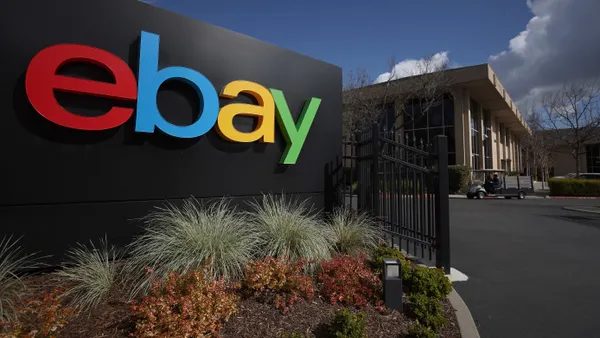Dive Brief:
- While 79% of brands now integrate their loyalty programs into apps, only 55% enable digital loyalty cards, according to new research from L2, which looked at branded apps (mostly retail-related) in the Apple App Store.
- L2 found 89% of the apps now have competitors' ads placed against their branded search terms in the App Store.
- Among the apps that face competitive bidding, 65% have lower ratings than the apps that place ads against them. The report cited a Fortune story that said the app economy will grow an estimated 380% between 2016 and 2021, with mobile commerce a key driver.
Dive Insight:
The best retail apps differentiate from the competition by improving the e-commerce experience and integrating omnichannel features as well as loyalty programs. However, retail brands must also invest in App Store optimization to raise their visibility in a crowded environment, L2 said in its report.
Some features are used as expected, such as push notifications, which are employed by 88% of apps. But there are other features that add value, like mobile wallet integration and biometric login. The adoption of these is underwhelming, at rates of 14% and 31%, respectively, according to L2.
The integration of loyalty features is another opportunity. Of the apps considered in the report, 77% integrated loyalty programs, while 54% offered in-app coupons or other promotions. Only 49% support a digital loyalty card, which L2 said is "a huge miss for brands that already integrate loyalty into apps."
L2 singled out four retail brands for having especially good apps and strategies to go with them: American Eagle Outfitters, Nike, Walmart and Nordstrom.
American Eagle's app features a photo scanner for taking pictures of clothing the customer presently owns, and doing searches based on gender, color and clothing category. Customers can also make purchases by scanning items in a physical store and having them delivered.
Nike maintains six free apps in the App Store that have won Editors' Choice and App of the Day awards, which have boosted downloads and also made it more difficult for competitors to control "above-the-fold real estate," L2 said.
Walmart actively markets and promotes its app in the App Store, and first-time installations grew 6.7% from 2016 to 2017, according to the study. Walmart was observed purchasing ads against the branded keywords of grocery competitor Meijer. And in consumer electronics, Walmart has taken a half-page app ad against Best Buy. Besides strategic advertising against competitors, Walmart also places defensive ads to protect its own branded term.
Meanwhile, Nordstrom organically optimizes against competitor branded keywords. This is likely done by matching the subtitles of competitors, which affect App Store search rankings. For example, Nordstrom mentions were seen appearing against department store competitor terms "Saks Fifth Avenue" and "Bloomingdales" by using similar subtitle text, including overlapping keywords such as "shopping," "fashion" and "designer," according to L2.











